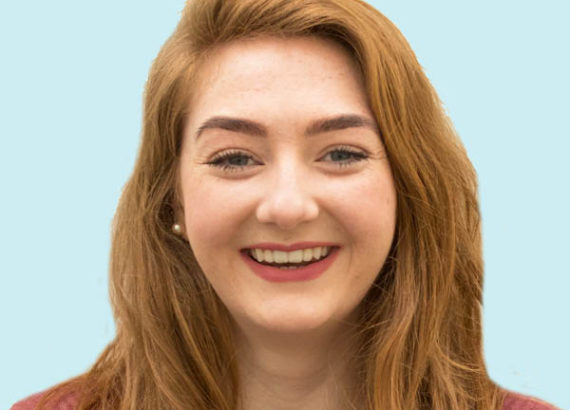By Julia Tereno
Working closely with students and helping them are the highlights of being Welfare and Equality Officer for the Students’ Union, said Clare Austick.
She also said she is happy with her achievements, such as the Consent Workshops, which took place in September 2018 at Corrib and Goldcrest Villages which over 400 students attended.
The Students’ Union helped execute the workshops and Clare pointed out that raising awareness on consent is really important.
Clare spoke to SIN about her achievements and overall experience as the Students’ Union Welfare and Equality Officer.
When asked what has been the most rewarding part of being Welfare and Equality Officer, Clare says it’s hard to choose. “That’s hard because there’s been so many highlights. I think definitely working with students on a daily basis and actually being able to help them and support them when they’re in the most needy situations.”
The role hasn’t come without its frustrations. “Again, if a student comes to you and you want to help them but there’s nothing you can actually do, and they know that you don’t necessarily have the answer.”
“In that case, all you can do is support them and be there for them. I think it is hard when someone comes to you and there’s nothing you can actually do. But then again, it’s important to support them and just let them know that you’re there and be able to listen. Being there for them is important.”
Clare said she is happy with what she has achieved over her term. “There’s a few things, at the very beginning of the year we had the Consent Workshops, and so it’s the first time that the Students’ Union kind of executed them.”
“We went to over 400 students over in Corrib and the Goldcrest [Villages] and that’s something I’m quite happy about, it’s really important to me to raise awareness around consent and allowing students to acknowledge and reach their own boundaries as well as respecting those of others.”
“The Mental Health Mondays was really good, we talk about different aspects of mental health each week and had out free fruit and water bottles across campus.”
“Something that I’m currently working on is the clothes bank and the food bank initiative, so if I can bring them in and make that kind of an annual event, I’d be very happy with that.
“Also, the University is sponsoring an initiative and making NUI Galway more aware and inclusive for refugees.”
In her manifesto, Clare said she wanted to create a clothes bank and a food bank for students who are facing financial trouble, make learning tools more accessible, create a handbook with all the relevant details about college, and have more relaxing waiting areas and seating on campus. SIN questioned Clare about how close she was to achieving these goals.
“Yeah, the food bank and clothes bank are actually pretty close to becoming an annual thing.”
“As for the social spaces, we’ve actually gotten confirmation that the old Print That area [beside Smokey’s] will be turned into a social space for students. There’s a social space working group being convened, so hopefully we can push for more funding and also social spaces across campus.”
As for the handbook, has that been done? “Each support service on campus has their own section on the NUI Galway website. The Union website has a lot of information and there are also leaflets on different things like accommodation, and so I actually didn’t need to do that.”
SIN also asked about making accessible learning tools for students who have a disability, a mental health condition, students whose first language isn’t English, mature students and for students who are parents.
“The Universal Design for Learning is kind of a project, we’re still working on it. It’s about making learning materials more accessible and to move away from the ‘all sizes fits all’ model. So, it’s kind of encouraging lecturers to think about their material, to make it more inclusive for everyone because not everyone learns the same way. There are students who are parents, who have children and can’t sit in the lectures, and students with learning disabilities as well.”
Clare also has some advice for the incoming Welfare and Equality Officer. “I think be confident and enjoy every moment of it because it really is awesome, you’ll have a lot of fun. Find your theme and choose the things that you want to do. Do whatever you want to do, for the person coming after me, they don’t need to follow my footsteps, but just do the things that they wish to do and achieve.”
